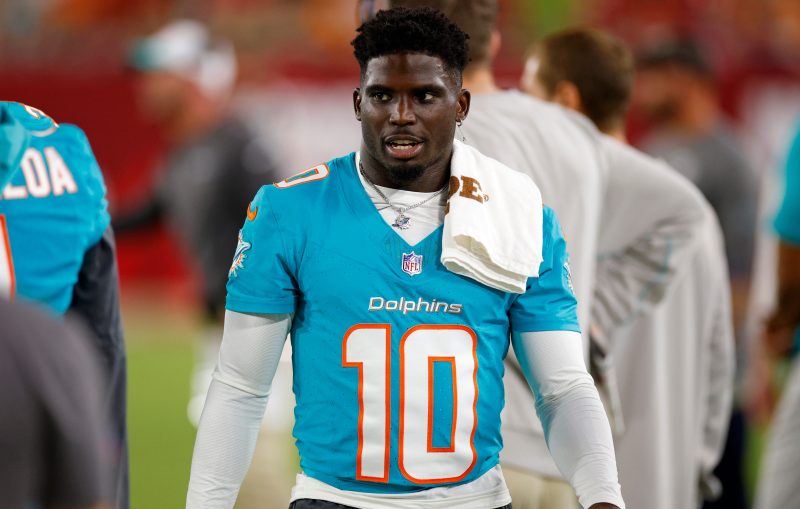Hill has pleaded not guilty to careless driving and driving without a seatbelt − the minor traffic violations at the center of a police encounter in which the Dolphins star was forcefully pulled out of his car and briefly placed in handcuffs. The tickets carry a combined fine of $308, while the careless driving citation would also result in three points being assessed against his driver’s license; The threshold for the suspension of a license in Florida is 12 points in 12 months.
‘The two citations will be litigated in court,’ Hill’s attorney Adam Goodman confirmed to USA TODAY Sports in an email Thursday night.
Goodman did not offer additional details when asked why the 30-year-old NFL star pleaded not guilty to the traffic tickets, but legal experts said there could be a variety of reasons for the move. If Hill intends to file a lawsuit against the Miami-Dade Police Department, some said that a possible civil case could be strengthened if the reasons for pulling him over in the first place were dismissed. Others said it might be because he has the financial resources to push back, or simply because he believes he did not commit any infractions.
‘Lots of regular people would do exactly what he’s doing,’ said Florida State University College of Law professor Lawrence Krieger. ‘It doesn’t have to mean something.’
All things Dolphins: Latest Miami Dolphins news, schedule, roster, stats, injury updates and more.
In the written plea, Goodman requested that the state of Florida produce information about the speed measurement device used by Miami-Dade police prior to the traffic stop. Officer Manuel Batista wrote in the citations that, per ‘visual estimation,’ Hill was traveling about 60 miles per hour in a heavily-trafficked area near Hard Rock Stadium prior to the Dolphins’ season-opening game against the Jacksonville Jaguars. The speed limit in that stretch of roadway is 40 mph.
While Hill was not ticketed specifically for speeding, the citations appear to cite his speed as a key factor in the allegation that he was driving carelessly. And if the only basis for Hill’s speed was an officer’s estimation, that could be a way for him to challenge the citations, according to Tim Jansen, a Florida-based criminal defense attorney who has previously represented athletes accused of wrongdoing.
‘He clearly has a basis to challenge the charges. And he has the means to challenge the charges,’ Jansen said. ‘I can’t predict his motive, what they’re trying to do, but I’m sure he has good legal counsel that has instructed him to file not guilty.’
In the body-cam footage, Hill appeared to acknowledge to officers that he was traveling 55 mph prior to being pulled over. But that would not preclude him from challenging the violations.
‘People fight traffic tickets for two reasons,’ Cleveland-based attorney Danny Karon added. ‘They think they’re innocent, or they have enough money to force the state to meet its burden of proof, which is beyond a reasonable doubt.’
The minor traffic infringements led to an encounter with police that has since made national headlines and renewed long-standing conversations about officers’ use of force.
According to the body-cam footage, at least three Miami-Dade police officers removed Hill from his car after he rolled up his window during the traffic stop, despite being asked to not do so and to exit the vehicle. The officers took Hill to the ground, put him in handcuffs and then forced him into a sitting position on a nearby curb, where he sat for about 15 minutes. One of the officers involved in the traffic stop, 27-year veteran Danny Torres, has since been placed on administrative duties pending the results of an internal investigation into his conduct.
Hill reiterated Thursday that he believes Torres should be fired, while also acknowledging that ‘I could’ve been better’ during the traffic stop.
‘Now, does that give them the right to literally beat the dog out of me? Absolutely not,’ he said in a news conference Wednesday. ‘But at the end of the day, I wish I could go back and do things a bit differently.’
Contact Tom Schad at tschad@usatoday.com or on social media @Tom_Schad.






